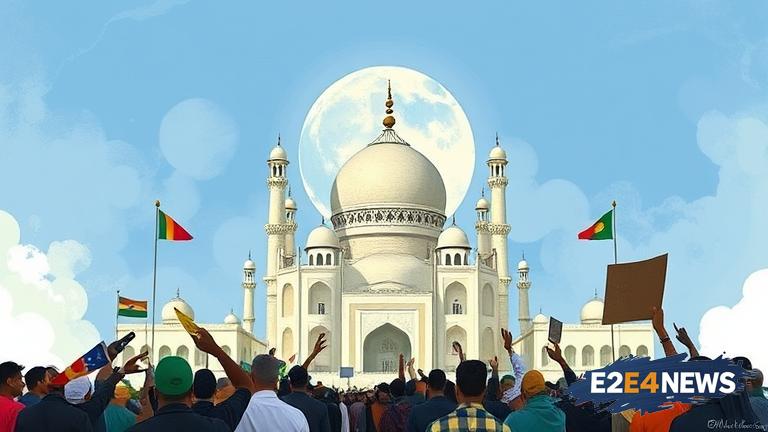The Muslim community in Sri Lanka has been facing a surge in Islamophobia, with many instances of hate crimes and discrimination being reported. This has led to a clarion call against Islamophobia, with many advocating for greater understanding and acceptance of the Muslim community. The situation has been exacerbated by the Easter Sunday bombings in 2019, which were carried out by a group of Islamist extremists. However, the Muslim community has consistently condemned the attacks and has been working to promote peace and harmony. Despite this, many Muslims have faced violence, intimidation, and harassment, with some even being forced to flee their homes. The Sri Lankan government has been criticized for not doing enough to protect the Muslim community, with some accusing it of turning a blind eye to the violence. The international community has also been urged to take action, with many calling for greater support and protection for the Muslim community. The situation is not only a human rights issue but also a threat to the stability and security of the country. The Muslim community has a long history in Sri Lanka, dating back to the 7th century, and has made significant contributions to the country’s culture, economy, and politics. However, the current situation has led to a sense of fear and uncertainty among many Muslims, with some feeling that they are being targeted and persecuted. The call to action against Islamophobia is not only a moral imperative but also a necessary step to promote peace, harmony, and stability in the country. It requires a concerted effort from the government, civil society, and the international community to address the root causes of the problem and to promote greater understanding and acceptance of the Muslim community. The situation is a reminder that Islamophobia is a global problem that requires a global response, with many countries facing similar challenges. The Sri Lankan government must take immediate action to protect the Muslim community and to promote greater understanding and acceptance. This includes implementing policies to prevent hate crimes, promoting education and awareness about Islam and the Muslim community, and providing support and protection to those who have been affected by violence and intimidation. The international community must also play a role, by providing support and assistance to the Sri Lankan government and by promoting greater understanding and acceptance of the Muslim community globally. Ultimately, the call to action against Islamophobia is a call to action for human rights, dignity, and respect, and requires a collective effort from all stakeholders to promote a more just and equitable society.





